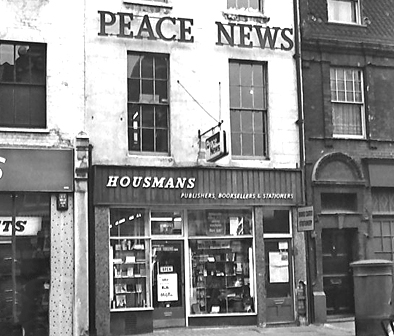Europe’s first International Nonviolent March for Demilitarisation took place in north-east France from August 4 to 10. People from 15 countries called for the conversion of military structures to civilian use, a nonviolent people’s defence rather than a suicidal military one, the abolition of military blocs, the liberation of objectors and total resisters to conscription, and civil rights for members of the forces.
The climax of the march was the afternoon of Sunday August 8, when – after marching over 10 miles through parched countryside – nearly 1,000 pacifists arrived at the cemetery of Douamont which contains the main war memorial of the battlefields of north-east France. Near Verdun, it is the graveyard of hundreds of thousands of victims of the First World War, victims often described locally not as victims at all, but only as glorious heroes who died for ‘the fatherland’. It’s the scene of many military ceremonies which serve only to glorify and encourage the ways of thinking that led to that useless slaughter of 60 years ago. Perhaps this pacifist commemoration, with its resolve that through nonviolence the repetition of such carnage will be prevented, would be the first meeting there to genuinely respect the memory of the dead.
So we discarded sandwich boards, banners and placards, except one at the front saying ‘Marche Internationale Nonviolente pour la Demilitarisation’ and one at the rear, ‘Plus Jamais la Guerre’ [No More War]. And we walked in dignified silence for miles into the cemetery. As we walked up the hill where the monument came into sight, we were confronted by a line of police. Behind them was a row of the sinister riot police – the CRS – and behind them members of militant rightist and old soldiers’ groups. The authorities had gone back on their word, and decided that the marchers, who included people with relatives buried there, were to be denied access to the tombs. We all sat down in the road....
The meetings in the towns we arrived at each evening were often well-attended, and the coverage in the regional right-wing paper the day after Douamont ran to three quite sympathetic pages.... The local organisers had done a fine job, but co-ordination at a political level proved difficult with so many different traditions of nonviolent action being drawn upon. The French language slogans were, as expected, superb, such as ‘Armies are the gangrene of the world – we are amputating.’


